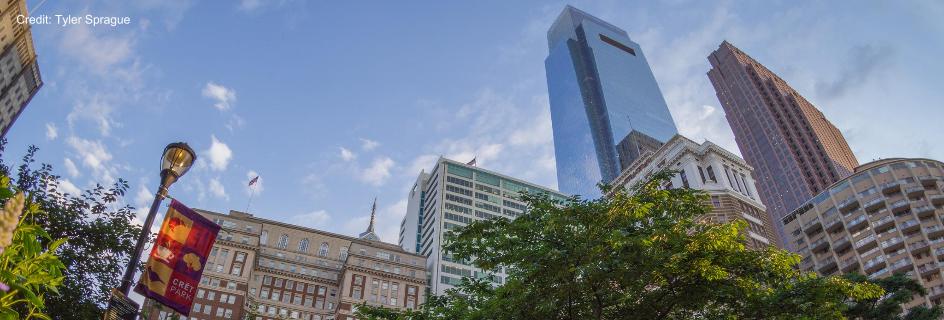- About GPA
- Global Events
- GLOBAL NEWS FROM PHL
- Global Directory
- World Heritage City
- Sustainable Development Goals (SDGs)
- Global Philadelphia Role on Sustainable Development Goals
- Completed Sustainable Development Goals
- SDG#1: No Poverty
- SDG #2: Zero Hunger
- SDG#3: Good Health & Well-Being
- SDG#4: Quality Education
- SDG#5: Gender Equality
- SDG#6: Clean Water & Sanitation
- SDG#7: Affordable and Clean Energy
- SDG #8: Decent Work and Economic Growth
- SDG #9: Industry, Innovation, and Infrastructure
- SDG#10: Reduced Inequalities
- SDG#11: Sustainable Cities and Communities
- SDG#16: Peace, Justice and Strong Institutions
- SDG#17: Partnerships for the Goals
- Press
Home ›
Global Conversations With: Enid Adler, Local Human Rights Activist and Founder of International Criminal Court
Posted on May 26, 2014
Peter Chawaga, for GPA -- Enid Adler is a lawyer, a journalist, an artist, but above all, she is a philanthropist dedicated to securing justice for those persecuted at home and abroad. From her roots in Norristown, Adler’s dedication to helping those in need led her to become a founding member of the International Criminal Court (ICC), the first such court dedicated to bringing perpetrators of humanitarian crimes throughout the world to justice, and eventually a human rights lawyer. On May 31, she will be honored with the Marian Anderson Historical Society’s Legacy Humanitarian Award for her lifetime accomplishments in defending human rights.
What prompted the formation of the ICC?
The ICC was formed in 1998 during a treaty conference in Rome. 160 countries participated in the conference and I was part of the non-governmental coalition. The idea came from the realization that we needed a permanent international criminal court, not just the independent courts that had surfaced from the United Nations. Courts they had at that point were in places like Rwanda and Yugoslavia, specifically designed for trying people in those countries who had committed crimes. They weren’t designed to function as the ICC does.
What was the process of forming the ICC like?
It came pretty much down to the wire before a treaty was agreed upon. The big issue, in the United States and other countries, was that there could be no amendments. As soon as you start to do that, they’re going to boil it down to nothing. The United States had tremendous interest in this treaty, everything that we wanted was there, but 120 countries needed to approve it. Luckily, it did happen.
In addition to your role as a human rights advocate in forming the ICC, you’ve been a teacher, a journalist and a musician. Why did you decide to start practicing law too?
I went to law school at 50. I thought that by having a law degree, I’d be able to do more in terms of international human rights. I wound up become an immigration attorney. I remembered my own history, in 1939 there was a ship with over 900 Jewish men, women and children that was sent back to Germany and not allowed to come into the United States. These were people who had been persecuted for coming here to seek asylum. I wanted to be able to explain to judges what the realities were. I see people from all over the world as human beings, I am curious about other peoples’ cultures. Becoming an attorney gave me the opportunity to be more involved.
You’ll be winning a humanitarian award from the Marian Anderson Historical Society at the end of the month. What does this award mean to you?
Not only was Marian Anderson a great artist, but she was a great humanitarian. She was the first black person to sing at the Metropolitan Opera. She opened the door for everyone else of color. To get an award with her name attached is so special. If I opened some doors by what I’ve done than I really feel accomplished. Not just for my generation but for future generations. Marian was an incredible woman who cared deeply for humanity. Through her singing and her voice, but also through her actions. It’s not just any award. She’s a Philadelphian and that makes it special too.
What do you have in store for the future?
I will continue to fight for human rights. My next focus will be human trafficking. I’m putting together a group that will focus on the women affected by that. I never know what my next challenge will be, but I’m still very involved with the international court and the coalition. The beauty of reaching out to people no matter who they are is unparalleled. I follow that philosophy. You get to a point in life when you start thinking about your legacy and I hope that my music, my writing, the many ways I've found to use my voice have helped people.
Photo courtesy of Philly.com.







